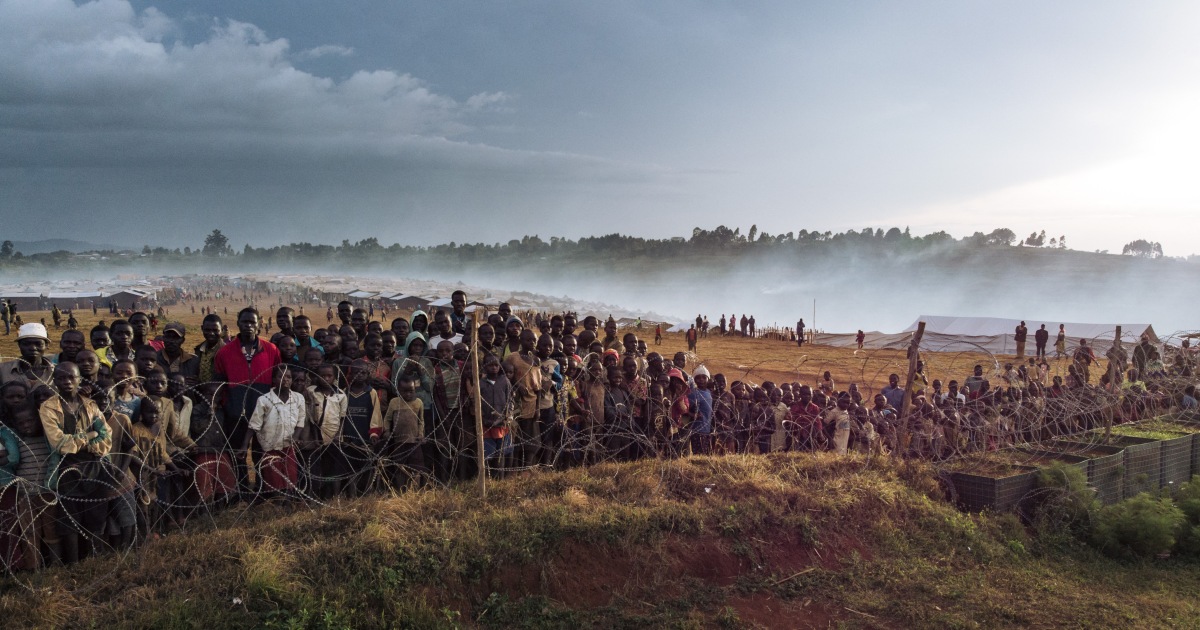ICJ to rule on DRC’s $11bn war reparations claim against Uganda

Top UN court is set to deliver a verdict at 14:00 GMT on DR Congo’s claim over Uganda’s role in conflicts in Ituri.
The United Nations’ top court is set to rule on a long-running compensation fight between the Democratic Republic of the Congo (DRC) and Uganda.
The International Court of Justice is set to deliver its verdict at 14:00 GMT on Wednesday over a claim the DRC – which is asking for billions of dollars in reparations for a brutal 1998-2003 war – launched against Uganda more than 20 years ago.
The long-running dispute was first brought before the court in 1999.
At its height, the conflict drew in nine African countries, with Uganda and Rwanda backing rebel forces against the Congolese government as they jostled for control of the DRC’s mineral-rich eastern region of Ituri.
After lengthy proceedings, the ICJ ruled in 2005 that Uganda had violated international law by occupying parts of Ituri with its troops and supporting other armed groups during the war.
At the same time, the court ruled on a counter-claim filed by Uganda, saying it should be compensated after its embassy in the DRC was attacked and its diplomats mistreated.
The Hague-based court ordered the African neighbours to negotiate reparations but, in 2015, the DRC returned to the tribunal, saying the talks were not progressing. The parties are now seeking a final decision on the amount of compensation.
The DRC is now claiming more than $11bn for the occupation of Ituri.
Last year, DRC’s lawyers were back in court however accusing Uganda “of serious breaches of human rights verging on barbarity”.
They said Uganda needed to “fully assume its responsibility for the injury caused … and a substantial contribution”.
Uganda’s representatives rejected what they called “staggering” demands for the claim, saying the sum claimed was “disproportionate and economically ruinous“.
“It essentially seeks to make Uganda responsible for everything that happened in the conflict,” Uganda’s Attorney General William Byaruhanga told the court.
Uganda said in hearings in April that DRC’s multibillion-dollar claim could ruin its economy and that its neighbour had not provided sufficient evidence of the losses it suffered.
The DRC, on its part, is seeking compensation not only on behalf of the alleged victims of Uganda’s involvement in the conflict but also for macroeconomic losses, loss of natural resources and harm to wildlife during a five-year war that left hundreds of thousands of people dead.
Currently Congolese and Ugandan troops are back in Ituri, but this time in an unprecedented offensive against the Allied Democratic Forces, the region’s deadliest militia, which the ISIL (ISIS) armed group calls its affiliate.
The F, formed in 1995, has been accused of carrying out dozens of attacks in eastern DRC.
The latest suspected F attack killed three people on Saturday in the Beni territory in the neighbouring North Kivu province. US-based monitor the Kivu Security Tracker (KST) blames it for more than 1,200 deaths in Beni alone since 2017.
Late last year, Ugandan and Congolese troops launched the combined offensive against the F despite the complicated relationships between the two neighbours.
Founded after World War II, the ICJ in The Hague rules in disputes between countries, mainly based on treaties.
Its decisions are final and cannot be appealed.






